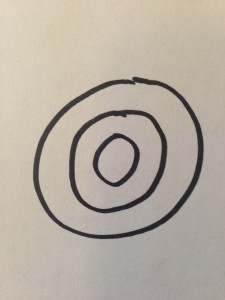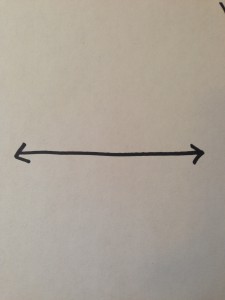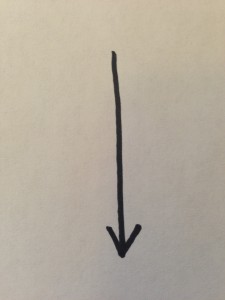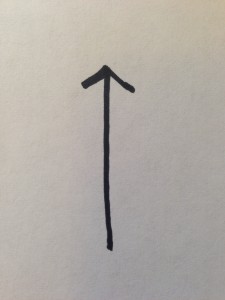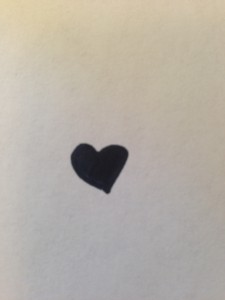I believe that our greatest fear is rejection-- the worry of what people think of us, the desire to be accepted, the craving to feel like we are good enough. So anything that risks us possibly feeling rejected is going to feel vulnerable.
What is Vulnerability?
Vulnerability, as defined by the dictionary means "capable of or susceptible to being wounded or hurt."
Some psychologists use words like disclosure, sharing, uncovering, and revealing to describe the act of being vulnerable.
One of my friends the other day described vulnerability as the willingness to let someone else impact us. A willingness, then, to actually be touched or moved by others.
Brene Brown, the Queen of Vulnerability (author of Daring Greatly: How the Courage to Be Vulnerable Transforms the Way We Live, Love, Parent, and Lead
To believe vulnerability is weakness is to believe that feeling is weakness. To foreclose on our emotional life out of a fear that the costs will be too high is to walk away from the very thing that gives purpose and meaning to living.
For me, I often think of vulnerability as showing up with less of a filter on expressing who I am. I recognize that it's not appropriate to share everything with everyone, but by the same token, I believe I can always share parts of me with everyone, and I strive to share more of me with a few, worrying less about what they will think of me as we built a mutual and safe relationship with each other. (Here is an old post that gives a visual for how we can incrementally increase our vulnerability in appropriate ways.)
Whatever words we use to define vulnerability-- more importantly, is what it looks like when we practice it.
To that end, I want to emphasize five different expressions of vulnerability that are crucial to building healthy relationships.
Five Different Expressions of Vulnerability That Are Important
These five expressions all take practice. None of us is immune from them feeling like a risk. By definition, the very idea that we could get hurt will cause some of us pause. Like I say in my book, it's valuing the connection, intimacy, and meaning on the other side that helps us value the possible gains over the possible disappointment.
I invite you to look at these five and ask yourself the question, "Which one of these could I practice more of in my life?" Knowing that when we find the one that might be the most difficult or scary, we have likely also found the one that could be the most expanding, meaningful, and freeing!
- New Ways of Interacting: For many of us, this one is surprisingly hard, though we don't often view it as a new way to practice vulnerability since it's less about sharing something and
more about acting on something, but anytime we "put ourselves out there" and extend an invitation, it is an action of vulnerability. A growing friendship depends upon us showing up willing to keep pushing the friendship into new territory-- the first time we start texting each other, the first time we extend an invitation, the first time we meet each others families, the first time we get together outside of a business premise, or the first time we just pick up the phone with no obvious excuse. The gift in initiating these new ways of being together is that these courageous actions are necessary to build the meaningful connection. We initiate and our chances increase exponentially that we end up with more friendships that matter.
- New Areas of Conversation: This might mean adding topics
such as politics, compassion, books, spirituality, body image, parenting, marriage, or goals to the conversation that is usually limited to the 2-3 safe topics already established. The gift in this type of sharing is it gives your friendship the chance to practice connecting on a wider range of life interests and experiences, helping you practice being interested even when it's not your thing, and glues the two of you together as more of your lives are shared.
-
Areas of Shame & Insecurity: This is the expression we most often associate with vulnerability, but it's just one piece. This certainly couldinclude the fear of revealing events from our past, actions we regret, and moments that made us feel un-lovable or unworthy; but far more significant than what happened to us back then, is practicing sharing where we feel insecure or worry with our lives now. There is healing in sharing these things with people who we have developed a safe relationship with as speaking our shame brings light into the darkness and disproves the voice that says those things make us less-than. The gift is being reminded that we are worthy even when we feel shame.
- Accomplishments, Achievements, and Pride: I've noticed a trend among women that sometimes we're more comfortable sharing our complaints and frustrations (usually about others, than about ourselves) than we are to share our accomplishments and
joys. We are so fearful of being seen as arrogant, or so desperate to want to fit in and relate (shouldn't talk about how fulfilling my marriage is when no one else seems happy in theirs...) that we minimize ourselves or dim our lights. We fear being judged for our positive traits as much as we do for our negative ones, frequently. I love asking my friends, "What's energizing in your life right now?" Or, "What are some of the highlights of your summer?" Or, "Tell me something that you've done recently that made you feel proud?" The gift is giving permission to ourselves that it's okay to shine, to choose happiness, and to love who we were created to be-- it gives permission to others, and helps us practice so we can shine brighter in this world."
- Asking for What You Prefer, or Need: For this one I draw a heart in the center because it starts with being in touch with myself
to know what it is I need and prefer in any situation. Sometimes it's as light as saying to anyone, "I so appreciate your advice, but what I really need right now is you to just listen and tell me I'm not crazy for feeling this way;" and sometimes it's an ask we make of some of our safer relationships, "Right now, I need you to come over here. I'm falling apart. I know it's a big ask as your life is full and busy, too, but if there's any way you can be here, it would mean a lot." The gift in this is learning to hear our own wisdom whisper what we need, what would be meaningful, and developing friendships where we don't have to be mind-readers but can come to trust each other to tell us how we can best love each other.
In my next post I want to show more how all these five areas work together, and are dependent upon each other.
But for now, are you willing to be brave enough (practice vulnerability!) and post a comment just sharing which of the five feels most important for you to practice right now in your friendships?


